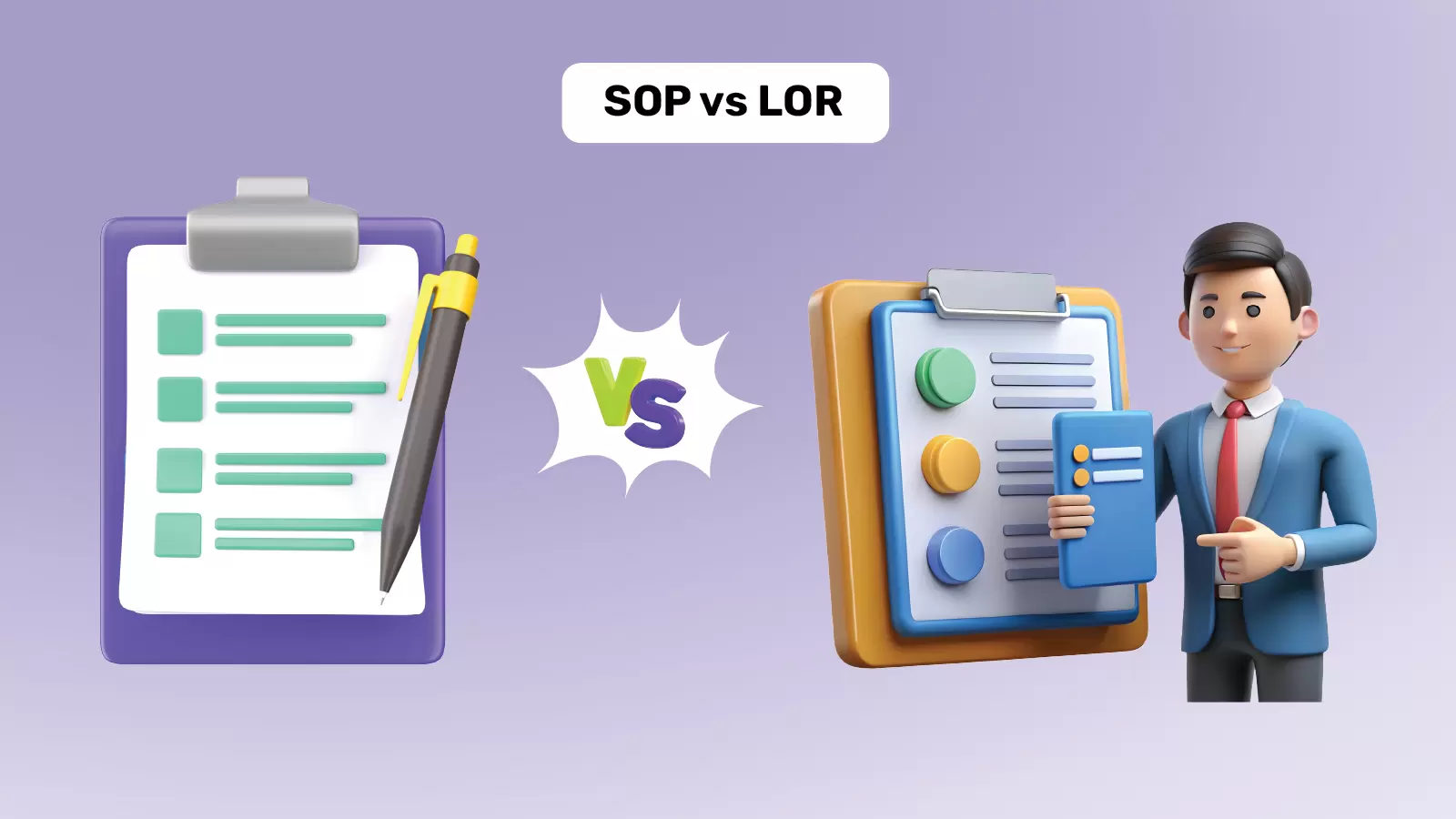Applying to universities abroad is more than just submitting transcripts and test scores. For Indian students, two of the most powerful documents in the application process are the SOP and LOR for Study Abroad. These documents give admissions committees a deeper understanding of who you are beyond numbers; your motivations, aspirations, achievements, and the impression you leave on mentors and professors.
Yet, many students underestimate their importance or make avoidable mistakes. This blog will break down what SOPs and LORs are, why they matter, and how you can craft them to maximize your chances of securing admission to your dream university.
What is an SOP for Indian Students?
The Statement of Purpose (SOP) is a personal essay that allows you to speak directly to the admissions committee. It explains your academic background, professional journey, career goals, and the reasons you are applying to a specific program and university.
Key elements of an SOP:
- Academic background – What subjects and projects shaped your interest?
- Achievements – Awards, internships, or research that highlight your capabilities.
- Career goals – Where do you see yourself in 5–10 years, and how will the course help?
- Motivation – Why this country, university, and program?
A well-written SOP reflects clarity, authenticity, and passion. It shows that you have direction and purpose. For Indian students, this document is your chance to tell a unique story instead of just listing credentials.
What is an LOR for Indian Students?
The Letter of Recommendation (LOR) is written by someone who has supervised, taught, or worked with you. Unlike the SOP, it is not written by you but by a professor, employer, or mentor who can vouch for your skills and potential.
Why LORs matter:
- They provide credibility to your achievements.
- They highlight qualities you may not mention in your SOP, such as teamwork, integrity, or leadership.
- They reassure the admissions committee that respected professionals believe in your abilities.
When applying abroad, most universities ask for 2–3 LORs. Strong LORs, combined with a compelling SOP, can make a significant difference in your application outcome.
Key Differences Between SOP and LOR
Although both are part of the same application, SOPs and LORs serve different purposes:
- Authorship: SOP is written by you; LOR is written by someone else.
- Tone: SOP is persuasive and aspirational; LOR is evaluative and objective.
- Perspective: SOP reflects your personal journey; LOR reflects how others perceive your skills.
- Content: SOP discusses your goals and motivations; LOR validates your competence and character.
A smart strategy is to ensure your SOP and LOR for Study Abroad complement each other. For instance, if your SOP highlights research passion, a professor’s LOR can confirm your dedication in lab work.
Tips to Write a Winning SOP for Indian Students
Admissions officers read thousands of SOPs. To stand out:
- Tell your story – Avoid generic statements like “I have always been interested in technology.” Instead, share real experiences that sparked your passion.
- Be authentic – Don’t exaggerate achievements. Admissions officers can detect insincerity.
- Align with the program – Show how the university’s curriculum, faculty, or labs connect to your career goals.
- Stay clear and structured – Write in simple, error-free English with a logical flow.
- Avoid clichés – Replace overused phrases with original insights.
Remember, the SOP is not just about why you want to study abroad; it’s about why the university should want you.
Tips to Secure an Effective LOR
A weak, generic LOR can harm your application, no matter how strong your SOP is. To ensure impactful recommendations:
- Choose the right referees – Professors or employers who know you well, not just big names with little personal connection.
- Provide context – Share your resume, academic highlights, and career goals with them so they can write specific, detailed letters.
- Highlight varied strengths – One LOR could focus on academic ability, another on leadership, and another on professional skills.
- Request early – Give referees enough time (at least 4–6 weeks) to prepare thoughtful letters.
- Follow up politely – Ensure submission before deadlines without pressuring them.
When written well, LORs act as testimonials that make your SOP even more persuasive.
Common Mistakes Indian Students Make in SOP & LOR
Many Indian students make avoidable errors that reduce the impact of these documents:
- Copy-pasting templates – Universities can spot standard SOPs easily.
- Generic LORs – Letters that just say “the student is hardworking” don’t stand out.
- Lack of personalization – Failing to highlight unique achievements or traits.
- Overloading with jargon – Writing overly complex language instead of being clear.
- Not connecting SOP and LOR – Missing the opportunity to reinforce each other.
Avoiding these mistakes can make your application stronger and more memorable.
Conclusion: SOP and LOR Can Make or Break Your Application
In the competitive world of international education, transcripts and test scores only tell part of the story. The SOP and LOR for Study Abroad reveal the human side of your application; your motivations, values, and the trust your mentors place in you.
Indian students aiming for top universities should view these documents not as formalities, but as opportunities to shine. Craft your SOP with honesty and vision, secure LORs from those who truly know and support you, and ensure both work in harmony.
When done right, these documents can transform an ordinary application into an extraordinary one. Your dream of studying abroad may depend on them; so invest the time, effort, and authenticity they deserve.



